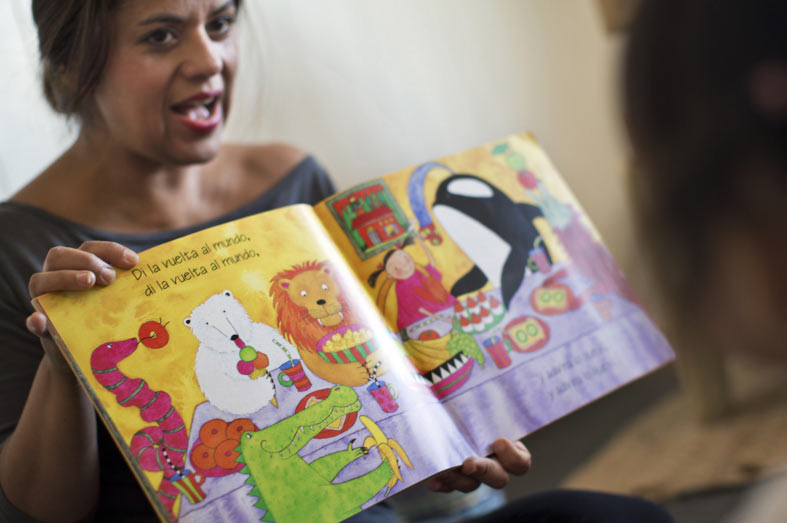One recent Saturday morning inside a small storefront classroom in Long Beach, preschoolers, toddlers and their parents bounced along to a Spanish-language song. Afterward, they talked among themselves in Spanish -- some with more difficulty than others.
The place is called The Family Nest, a part-time Spanish immersion school for young children. The parents that come here are mostly Latino. But many aren't immigrants -- or, for that matter, great Spanish speakers.
Some have had to work at it -- and still are, along with their kids.
“It’s challenging, because I’ve spoken English for 30 years of my life," said Mariela Salgado, who attends classes there with her two young daughters. "I've been in American schools all my life. I have an MBA. I worked in corporate America. So English has been my primary language."
